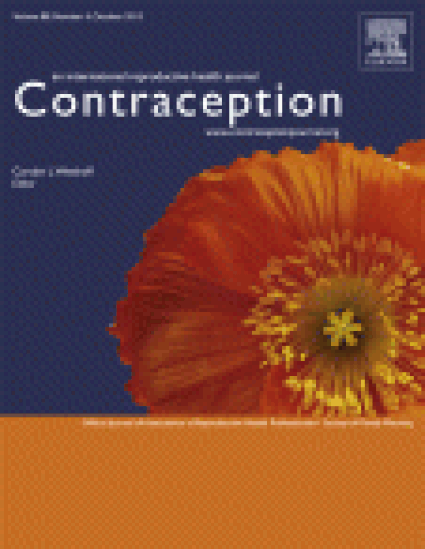
Article
Pathways to Unsafe Abortion in Ghana: the Role of Male Partners, Women and Health Care Providers
Contraception
(2013)
Abstract
Background Despite abortion being legal, complications from induced abortion are the second leading cause of maternal mortality in Ghana. The objective of this study was to understand the decision-making process associated with induced abortion in Ghana.
Study Design Data were collected from female postabortion patients, male partners, family planning nurses and obstetricians/gynecologists at two teaching hospitals in Ghana using in-depth interviews and focus group discussions.
Results While experiences differ for married and single women, men are involved in abortion decision making directly, through “orders” to abort, or indirectly, through denying responsibility for the pregnancy. Health care providers can be barriers to seeking safe abortions in this setting.
Conclusions Women who choose to terminate a pregnancy without their male partners' knowledge should have the means (both financial and social) to do so safely. Interventions with health care providers should discourage judgemental attitudes and emphasize individually focused patient care.
Keywords
- Ghana,
- Abortion,
- Unsafe abortion,
- Health providers,
- Male partners,
- Men
Disciplines
Publication Date
October, 2013
Publisher Statement
Copyright © 2015 Elsevier B.V doi:10.1016/j.contraception.2013.03.010
Citation Information
Hilary Schwandt, Andreea A. Creanga, Richard M.K. Adanu, Kwabena A. Danso, et al.. "Pathways to Unsafe Abortion in Ghana: the Role of Male Partners, Women and Health Care Providers" Contraception Vol. 88 Iss. 4 (2013) Available at: http://works.bepress.com/hilary_schwandt/2/
